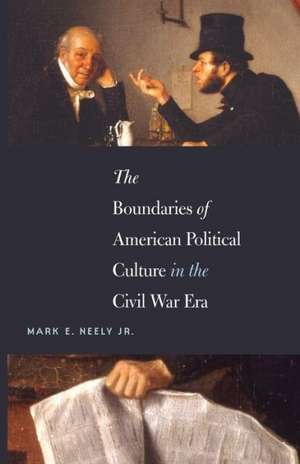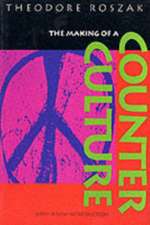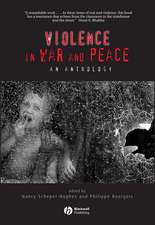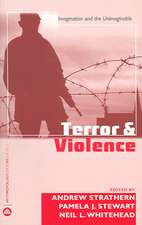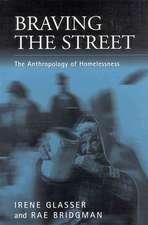The Boundaries of American Political Culture in the Civil War Era: Steven and Janice Brose Lectures in the Civil War Era
Autor Mark E. Jr. Neelyen Limba Engleză Paperback – 31 dec 2014
Looking beyond the usual markers of political activity, Neely sifts through the political bric-a-brac of the era--lithographs and engravings of political heroes, campaign buttons, songsters filled with political lyrics, photo albums, newspapers, and political cartoons. In each of four chapters, he examines a different sphere--the home, the workplace, the gentlemen's Union League Club, and the minstrel stage--where political engagement was expressed in material culture. Neely acknowledges that there were boundaries to political life, however. But as his investigation shows, political expression permeated the public and private realms of Civil War America.
Preț: 225.63 lei
Nou
Puncte Express: 338
Preț estimativ în valută:
43.18€ • 44.22$ • 35.92£
43.18€ • 44.22$ • 35.92£
Carte tipărită la comandă
Livrare economică 18 martie-01 aprilie
Preluare comenzi: 021 569.72.76
Specificații
ISBN-13: 9781469625546
ISBN-10: 1469625547
Pagini: 176
Dimensiuni: 140 x 216 x 10 mm
Greutate: 0.23 kg
Editura: University of North Carolina Press
Seria Steven and Janice Brose Lectures in the Civil War Era
ISBN-10: 1469625547
Pagini: 176
Dimensiuni: 140 x 216 x 10 mm
Greutate: 0.23 kg
Editura: University of North Carolina Press
Seria Steven and Janice Brose Lectures in the Civil War Era
Recenzii
"A fresh and idiosyncratic view of political culture that can serve as a model for other investigations."
-- "Civil War Book Review"
"A ground-breaking look at how the average American thought and participated in politics in the decades around the Civil War."
-- "The NYMAS Review"
"Reinvigorates the debate over the pervasiveness and character of politics. . . . An important read for political, social, and public historians alike."
-- "The Historian"
"[A] splendid little volume . . . unfailingly smart, imaginative, and thought provoking. . . . A joy to read. All those interested in the political culture of the Civil War Era will want this book on their shelves."
-- "Journal of Southern History"
"An admirable effort to understand what exactly politics meant to the mid-nineteenth-century American electorate. It is essential reading for those interested in nineteenth-century politics, and it is a model in its innovative reading of political material culture."
-- "The Pennsylvania Magazine of History & Biography"
"A rich work, well researched and thought provoking, yet surprisingly modest in bulk and heft. . . . Clear and direct in argument, Neely supports his thesis well and avoids the trap of overcomplicated prose. A great piece of scholarship, it will prove interesting for both students and scholars of American history and politics."
-- "Arkansas Review"
-- "Civil War Book Review"
"A ground-breaking look at how the average American thought and participated in politics in the decades around the Civil War."
-- "The NYMAS Review"
"Reinvigorates the debate over the pervasiveness and character of politics. . . . An important read for political, social, and public historians alike."
-- "The Historian"
"[A] splendid little volume . . . unfailingly smart, imaginative, and thought provoking. . . . A joy to read. All those interested in the political culture of the Civil War Era will want this book on their shelves."
-- "Journal of Southern History"
"An admirable effort to understand what exactly politics meant to the mid-nineteenth-century American electorate. It is essential reading for those interested in nineteenth-century politics, and it is a model in its innovative reading of political material culture."
-- "The Pennsylvania Magazine of History & Biography"
"A rich work, well researched and thought provoking, yet surprisingly modest in bulk and heft. . . . Clear and direct in argument, Neely supports his thesis well and avoids the trap of overcomplicated prose. A great piece of scholarship, it will prove interesting for both students and scholars of American history and politics."
-- "Arkansas Review"
Descriere
Did preoccupations with family and work crowd out interest in politics in the nineteenth century, as some have argued? Arguing that social historians have gone too far in concluding that Americans were not deeply engaged in public life and that political historians have gone too far in asserting that politics informed all of Americans' lives, Mark Neely seeks to gauge the importance of politics for ordinary people in the Civil War era.
Looking beyond the usual markers of political activity, Neely sifts through the political bric-a-brac of the era--lithographs and engravings of political heroes, campaign buttons, songsters filled with political lyrics, photo albums, newspapers, and political cartoons. In each of four chapters, he examines a different sphere--the home, the workplace, the gentlemen's Union League Club, and the minstrel stage--where political engagement was expressed in material culture. Neely acknowledges that there were boundaries to political life, however. But as his investigation shows, political expression permeated the public and private realms of Civil War America.
Looking beyond the usual markers of political activity, Neely sifts through the political bric-a-brac of the era--lithographs and engravings of political heroes, campaign buttons, songsters filled with political lyrics, photo albums, newspapers, and political cartoons. In each of four chapters, he examines a different sphere--the home, the workplace, the gentlemen's Union League Club, and the minstrel stage--where political engagement was expressed in material culture. Neely acknowledges that there were boundaries to political life, however. But as his investigation shows, political expression permeated the public and private realms of Civil War America.
